A must-read! Teaching & Learning for Change: Education and Sustainability in South Africa.4/19/2022 Our quality of life as humanity has drastically improved since the first industrial revolution in the 1800s. Since then, we have been continually using and depleting non-renewable resources and this has presented significant challenges, the biggest challenge being that of climate change. The youth will be most affected by the implications of climate change and therefore they must be agents of change. How do we make this happen? The answer lies in SDG4: Quality Education! What constitutes quality education? The book Teaching & Learning for Change: Education and Sustainability in South Africa shares research about how curriculum policy, teacher education programs, and teachers themselves are responding to this challenge through the integration of Education for Sustainable Development (ESD). It draws on small-scale empirical studies in South Africa, that are embedded in a coherent national teacher professional development program. ESD can provide children with the hope of being able to build a better world and improves their understanding of issues around the environment and sustainability. This article offers insight into what you can expect when delving into the pages of this book and highlights the Fundisa for Change program that GreenMatter is in partnership with. It answers the question, what constitutes good or quality education? Links between sustainability and education This book does an amazing job of highlighting the link between sustainability and education. You will learn that to position ESD in the broader educational context, we need to rethink education in terms of development intentions. Simultaneously it critically analyses the evolution of development thinking, identifying well-being, equality, and restoration of both social and planetary balances as core development considerations. You may ask yourself, what is the key role of education? Well, the key role of education is to enhance human development, and development itself is not an end goal but an ongoing process. Education usually increases the quality of life for humanity and the flourishing of the human race is the ultimate end of development. This link between sustainability and development can also be found within the Sustainable Development goals. Fundisa for Change program South Africa’s latest curriculum, Curriculum Assessment Policy Statements (CAPS), is rich in environmental and sustainability content. However, that does not eliminate the challenge for educators of the dominance of existing educational models and approaches. The Fundisa for Change program supports the integration of ESD in teacher professional development and curricula. This program was established in 2011 to provide a systemic approach to environmental learning through teacher education. The approach used by Fundisa for Change:
This book comes highly recommended to help you form a deeper understanding of how education can be used as a tool to combat climate change. To read the full book click on this link. Let us know what you learned from the book in the comment session!
Senamile Sishi Environmental Youth for the Future!
4 Comments
Physical activity is very important for your health! Maintaining a healthy body and a healthy mind is a great investment for your current and future well-being. Regular exercise improves respiratory health, cardiovascular health, and general health. This can have a profound impact on several areas in your life, including your career. How do the two connect? Well, exercise helps clear up “brain fog”, improving productivity and mental capacity. Exercise has been proven to help in managing stress, improve sleeping patterns, reduce the risk of major illnesses, help increase your brain function, and reduce workday absences. The average South African spends 8 hours in their workplace, therefore some South Africans feel that they do not have enough time to fit physical activity into their routine. However, it is advisable to make exercise a priority in your life. Even the busiest among us still find a way to fit exercise into their schedule and this investment has major benefits. Below are 5 reasons why investing in physical activity will benefit your workplace performance. Managing and Reducing Stress Exercise in any form can help you reduce your stress because it stimulates the release of your feel-good hormones. When you exercise, endorphins, which are the body’s natural painkillers, and they create a general feeling of well-being. Although this may be popularly known as the “runners high”, it also applies to different kinds of physical activity such as swimming, playing tennis, etc. When you are stressed, you are more prone to error, poor work performance, burnout, and conflict, therefore exercising and managing your stress levels will significantly improve your workplace performance. Improving Sleep Exercise helps to improve sleep, which is often hindered by stress, depression, and anxiety. So, managing your stress automatically improves your sleeping patterns. Another way that exercise helps improve sleep is that exercise tires you out. The more physically active you are, the more your body pushes you to sleep at night. Exercising outdoors has an added benefit because the natural light helps your body establish a good sleep-wake cycle. Increasing Brain Function When you exercise, the increased heart rate increases blood circulation increasing the amount of oxygen that reaches the brain. This aids in the release of hormones that create an environment that is conducive to the growth of brain cells. Exercise also enhances neuroplasticity by encouraging the development of new connections between cells. Improved neuroplasticity enhances your cognitive abilities, increases your ability to learn new things, facilitates a speedy recovery from stroke or traumatic brain injuries, and boosts your overall brain fitness. Helps Prevent Illness As previously stated, exercise is extremely beneficial to your health, and it helps to prevent many types of illness such as type 2 diabetes, heart disease, many types of cancer, depression, anxiety, and dementia. Physical activity helps flush out all the bacteria in your lungs and airways, reducing your chances of getting flu, cold or other illnesses. Regular physical activity has been shown to reduce the mortality rate from chronic illness. Reduces workday absences The decreased risk of illness results in fewer sick days at work. Evidence from research has shown that physical activity effectively reduces sick absences. Being constantly absent impacts, your workplace performance because when you work less you are likely to be less productive and you leave a lot of work for your colleagues left behind which creates a ripple effect on you, your team, and management. The most common causes of long-term absenteeism are stress, sickness, mental ill-health, musculoskeletal injuries, and back pain. Decreasing the levels of absenteeism in a workplace improves productivity, increases the quality of work, mitigates financial loss, and improves morale. Now that you know all the benefits of physical activity, it is time for you to go become more physically active. You may start with small steps such as walking for 30 minutes a day every day, thereafter you can start increasing the frequency and intensity of your physical activity. Senamile Sishi Environmental Youth for the Future! Leadership development is critical in advancing the environmental sector. That is the message that GreenMatter, the WRC and DSI focused on as they hosted the WRC Water Fellowship Insights event. This event took place on Wednesday, 16th of March on Zoom, to celebrate the completion of its third cohort of postgraduate Fellows. The Fellowship Programme is an innovative partnership of GreenMatter, the Water Research Commission (WRC), the Department of Science and Innovation (DSI) and the Department of Forestry, Fisheries and Environment Affairs (DFFE). It aims to strengthen technical and social competencies, develop skills, provide a comprehensive career path, and connect the emerging leaders to a network of peers, mentors, and role models at sectoral levels. Dr Roderick Juba, a former GreenMatter Fellow, facilitated the event. Buyani Zwane, the GreenMatter Board Chairperson, provided an insightful presentation highlighting the role of leadership development in the South African Water Sector. Shanna Nienabar, the WRC Water Research, Development & Innovation Roadmap Programme Manager, and Dr Henry Roman, DSI Director: Environmental Services and Technology, both gave knowledgeable and inspiring presentations about what the water sector needs from its postgraduate students. Following that was a panel discussion in which four graduating Fellows, Slyvester Malekeng, Lohan Brendenhann, Kopano Moekwena, and Mendy Ndlovu provided frank assessments and reflections, giving us a sense of where we have performed well and how we might improve in the future. The GreenMatter Acting Director of Programmes, Duncan Hay, provided a warm closing and thanks. This was then followed by the graduation ceremony for the graduating fellows led by Moshadi Mashangoane. This event was a very enjoyable and insightful experience. To highlight five important lessons that emerged.
1. Make Excellence a Standard Buyani Zwane highlighted that we must make excellence and winning a standard! He stated that we are too often told that is it okay to be just above average. However, in a situation where you are undergoing a serious medical procedure, you would not want a doctor who is just above average. When you are boarding an aeroplane, you would not want pilots that are just above average. They do not fly an aeroplane into the sky unless they can perform excellently. Therefore, in our leadership development programme as GreenMatter, we seek to bring through the habit of excellence within our fellows! Click here to access Buyani Zwane’s slides. 2. Skills Demand in the Water Sector Shanna Nienaber from the Water Research Commission presented very insightful slides of the types of skills that industry is seeking within the water sector! The skills that she listed are in three groups:
You may find these slides by clicking here. 3. You are a Project Manager of yourself Have you ever heard the saying that life is a Do-It-Yourself project? These are the sentiments that Dr Henry Roman, expressed during a personal reflection. “When you do a Master’s or a Ph.D. you are a project manager, albeit of yourself” You learn the skills of managing your time and managing your resources, you learn to understand the type of study you are doing and how to go about it. 4. Leadership is Influence “Leadership is influence, nothing more, nothing less” - John Maxwell (author of The Law of Influence) Buyani Zwane expressed very important sentiments regarding influence. Leadership development is about how we influence people inside and outside of the environmental sector, to see the value that this sector provides. We can have a positive or negative influence in this regard; however, it is important to ensure that we have a positive influence. This is the reason we seek to attract to the sector, true winners! 5. The Impact of the GreenMatter Fellowship The panel discussion involving past GreenMatter fellows was very insightful, and it highlighted the impact that this fellowship provides its beneficiaries. Kopano Moekwena stated that the GreenMatter fellowship really helped her to strive. She was able to apply project management skills, induce group work ethic and she was able to use her knowledge and skills to make a difference. Sylevester Malekeng was inspired by the soft skills training to reflect on “why are we doing what we are doing and why should we continue doing things the way we are now, and what changes do we need to make?” Mendy Ndlovu stated that she obtained various soft skills, and she has been building on them. Lohan Brendenhann highlighted emotional intelligence as a very important skill he learned within the fellowship. He stated that understanding this term and how to use it, it made him understand how to better manage interpersonal relationships between co-workers. These are just a highlight of various lessons that were learned during this seminar. To watch the full event, click here (passcode: 1@Dj?RrN). If you attended the event, be sure to drop some comments and let us know what lessons you learned from this event! Senamile Sishi Environmental Youth for the Future! You are what you repeatedly do! Your habits, therefore, determine your character. In our previous blog post, we talked about how to build habits for career success! If you did not read our previous blog post, you may read it here. Now that you know how to build habits, let's talk about which habits to build if you seek to be an effective leader! If you have been part of any team then you will know that some leaders are effective, and others simply aren’t. Effective leaders provide guidance, inspiration, and direction to produce better outcomes for their teams. Are you an effective leader? If you do not consider yourself an effective leader, do not feel discouraged. Leadership is a skill, and it can be honed! Your habits play an important role when it comes to honing your leadership skills! Below, are 5 habits that you build, that will help you become a more effective leader! “Effective leadership is the only competitive advantage that will endure. That's because leadership has two sides - what a person is (character) and what a person does (competence)” 1. The Habit of Excellence! “We are what we repeatedly do. Excellence, then, is not an act, but a habit.” This quote by Aristotle is a great reminder, that excellence is a habit! It is important to cultivate this habit because as an effective leader, you provide guidance and direction. Therefore, if you do not have the habit of excellence, how will you inspire your team to be excellent? When excellence is a habit, it manifests itself in everything that you do. We can get fooled into thinking that excellence comes with shiny awards and extravagant accolades, but excellence is essentially who you are. 2. Pitch Up, Be Organized, and Engage! Life is full of distractions; this is especially true if you are a leader. Imagine a situation in which you are attending a conference where the top scientists or business leaders are gathered, and you are set to learn a lot and be inspired by them! During this conference, you receive a call that requires your attention, in which there is an emergency at the office. Now instead of attending the conference, you are spending your time advising on how best to engage with this unhappy client. This is not to say that the client is not important, however, you have now missed a golden opportunity for learning and growing your network. It is important as a leader, to always pitch up and be present so that you may take advantage of each opportunity. Always be organized and engaged wherever you are. In this situation, it would be helpful to train your team in a manner that will allow them to operate without you, this allows you to be present, prepared, and engaged, without having to worry about. 3. The Habit of Action! Here is a question for you; 3 frogs are sitting on a log, 2 decide to jump into the water, how many are left? Did you answer 1? Well, that is one way of looking at it. The other way of looking at it is that there are 3 frogs left, the other 2 just took a decision and acted on it! There is a difference between deciding and doing. As a leader you will spend a lot of time deciding on things, however, decisions have absolutely no impact in the real world, you have to act on your decisions! Fear can prevent us from taking action, however, effective leaders know that growth cannot happen when one stays in their comfort zone. 4. The Habit of Persistence “The habit of persistence is the habit of victory" Persistence is perhaps one of the most admirable qualities a leader can have. A lot of people have the capacity to have a vision and set goals towards their vision, however, only a few get to accomplish their vision because they lack persistence. If, as a leader, you do not have the habit of persistence, your team loses its significance. A leader that does not have this habit, is not likely to achieve success. 5. The Habit of Listening! Listening is a core communication skill and it is fundamental for effective leadership! As a leader, you can only improve if you are open to feedback, this requires you to have adopted the habit of listening. It is important that you improve your listening skills so you may become fully immersed in what your team members have to say, this fosters an environment of psychological safety and this is the differentiating factor in high-performance teams. Failure to adopt the habit of listening leads to mistrust, and misaligned strategies.
Now that you know the 5 habits for successful leaders, you may use our guide on cultivating good habits, to cultivate these habits in your own life. This will take you a step closer to becoming the effective leader that you want to be! Senamile Sishi Environmental Youth for the Future! Habits are automatic rituals and behaviours that help us perform important activities such as brushing our teeth or following the same routes every day without thinking about it. Our subconscious habits create space in our brains for more complex tasks such as problem-solving. You can form habits without intending to form them, however, habits can also be deliberately cultivated – or eliminated – for your benefit! Why are habits important? Habits can be seen as the daily vote that you cast towards your future self! Habits form a huge part of your identity as a professional. Harnessing the power of good habits plays an important part on the road to success. Successful people are often big dreamers with big ambitions! Often, we tend to fear or be discouraged by big dreams, sometimes the endpoint seems too far. It becomes very useful to be able to break down your dream into smaller actionable steps or a group of habits. Thereafter, it is easier to focus on the smaller and manageable tasks, than to feel overwhelmed by your dreams. “Motivation is what gets you started; habit is what keeps you going” How to build better habitsHabit Audit You are what you repeatedly do, so you owe it to yourself to deepen your understanding of your habits. It is best to schedule time every week to review your habits. Once you understand the frequency of each of your habits, then you can start planning around how to eliminate unhealthy habits or cultivate the healthy. Start Small “When making plans, think big. When making progress, think small” Big changes in your behaviour or habits require motivation which usually cannot be sustained. It is important to start smart when building new habits, to make it as easy as possible in the beginning so that you may stick it out.
Use the CRR (Cue – Routine – Reward) Method! The CRR method is a very useful technique, which uses psychology to hack your habit formation process. CRR stands for Cue – Routine – Reward. The cue is a trigger that reminds your brain to do something (for example boredom may be a cue to start scrolling on social media). After the cue, follows the routine. A routine may be physical, emotional, or mental (scrolling through social media for hours is an example of a routine). After the routine, then comes the reward (for example the bursts of dopamine that result from scrolling through social media). If you take this principle and apply it to cultivating the good habits that you want to build, you can hack your brain and make it much easier to adopt a new habit. Create a cue for your new healthy habit (e.g., the sound of your alarm), follow that up with a routine (e.g., start exercising), and you may then decide on a suitable reward (e.g., smoothie or chocolate). Be consistent Consistency is key to breaking bad habits and forming good or better habits. One of the best predictors of habit-formation success is the frequency in which the habit is performed. The strength of a habit is defined by how automatic it is. Work on making your small habits become an automatic part of your brain function so that you perform these habits without thinking about them. You may do this by performing the habit as consistently as possible. Read more about habits and habit formation Reading this blog was a great start to understanding habits and knowing how to build better habits for success! The next step is to read more about the habit formulation process, as this is a deep-rooted part of our brain and requires deep reading to fully understand. The following are a few recommended reads that you can start with:
Remember that you are your habits! Therefore, if you would like to improve yourself, then you must improve your habits. Senamile Sishi Environmental Youth for the Future! A resume or CV is a document that is often used in the hiring process. This document includes information about your background, qualifications, experience, and it must include the most relevant information that your potential employers have to know, clearly and concisely. However, in today’s age of technology, CVs rarely make it past the ATS (Applicant Tracking System) into the hands of your potential employer. You need to counter this by making sure that your CV is as ATS friendly as possible, to increase your chances of employment. What is an Applicant Tracking System? You can think of ATS as electronic gatekeepers for employers and hiring managers. They do the work of vetting out irrelevant or unqualified applicants, so that the recruiters' time may be used to evaluate the candidates who are a better match. The ATS uses keywords to determine the most suitable candidates and it tends to have embedded artificial intelligence that mimics the human thought process. If you are applying to a large organization, the chances are you will have to face an ATS. If you apply online through an organization’s website, your CV will pass through an ATS. Job sites such as Indeed or LinkedIn also have their built-in ATS. Hence you must write a CV that beats the ATS so that it may be seen by human decision-makers! If you have been applying for jobs and not getting the required feedback, then it could be that your CVs are not getting into the hands of human decision-makers because they are not ATS friendly. Well, do not fret! We are here to help you write a CV that will beat the ATS system, giving you a better chance and landing the job you desire. The definition of insanity is doing the same thing over and over and expecting different results. How to Write an ATS-friendly CV: It is important to navigate the ATS with an ATS-friendly CV so that you may be able to move to the next round of the hiring process, improving your chances of employment. Here are some tips on writing an ATS-friendly CV. 1. Choose an ATS friendly file type Save your CV as a PDF or .docx file. Some of the older ATSs have trouble reading pdf files, however, if the job advert does not specify which format to use, then you may use a .pdf or .docx file. The following fonts are ATS friendly, Times New Roman, Calibri, Arial, or Georgia. 2. Do not put important details on the header or footer Avoid using headers or footers because the information in headers and footers may often get lost or cause errors. Avoid this by not putting important details (such as background, contact information, education, experience, and skills) on the header or footer of your CV. 3. Optimize your CV with keywords This is the best way to ensure that your CV is ATS friendly! The primary job of the ATS is to track the most suitable candidates for a position through scanning the keywords! Therefore, you must optimize your resume whenever you apply for a new position for that position. Use the keywords from the job description on your CV. It is also very important to label your headings correctly. ATS-friendly CV headings include work experience, skills, and education. 4. Avoid images, charts, and other graphics While images, charts, and other graphics (such as tables), may look nice to the human eye, the ATS is unable to read it, therefore that information will be lost on the applicant tracking system. Including images in your CV may result in it being automatically discarded. 5. Stick to simple bullet points Bullet points, if used correctly, are a great way of highlighting your accomplishments and qualifications. Do not use any fancy bullet points, use simple options such as the solid circle, open circle, or square. The solid circle is the most advisable. It is also important to format your resume in the following manner: use font between 10–12-point size, use 1-1.5 inches on your margins, make your name and section headers bold or slightly bigger in font size, and list your information in bullet points. Now that you know and understand the ATS, it is time to get to work and optimize your resume to beat the ATS system! Once you have done that, you may utilize resume review websites, that will provide expert feedback on your CV, they will also provide feedback on whether your CV would make it past an ATS system. The following are good resume review websites that you can try out; ZipJob, Jobscan, TopResume, Resume Worded, and RezScore. This will greatly boost your chances of being selected and moving to the next phase of the recruitment process. All the best! Senamile Sishi Environmental Youth for the Future! Living in a country like South Africa, which has the highest unemployment rate in the world, can be a very stressful experience for a graduate. The unemployment rate in South Africa is 44.4% and more than half of the youth are unemployed. Employment opportunities are scarce meaning there is a lot of competition for each opportunity. Only having a degree is not enough to get you employed, you need to improve your employability so that you may have a better chance at finding suitable employment. Employability refers to one’s ability to gain employment, maintain employment as well as get employed elsewhere if need be. Employability is not just about getting a job; it also refers to a broader set of skills and attributes that will enable you to have a successful career throughout your life. If you are a young unemployed graduate (or even if you are employed), we have some great tips for you to improve your employability, particularly in the biodiversity or green economy. “The biodiversity economy encompasses businesses and other economic activities that either directly depend on biodiversity for their core business or that contribute to conservation of biodiversity through their activities” South Africa is one of the most biodiverse countries in the world, therefore the biodiversity economy is the basis of employment across many sectors. Here are a few tips to improve your employability so you may access more opportunities within the biodiversity, water or environmental sector.
Improve your soft skills Soft skills are interpersonal attributes that are required in the workplace. Soft skills help you utilize your hard skills to their full extent, some may even argue that soft skills are more important than hard skills. Soft skills include leadership skills, communication skills, problem-solving skills, teamwork, work ethic, adaptability, interpersonal skills, time-management skills, etc. You may learn or develop these skills through reading books, listening to podcasts, reading blog articles, and watching online videos that are relevant to the skill you are trying to develop. Work on your CV Your CV is one of the most important instruments when looking for employment, make sure it is professional, clear, concise, and up-to-date! It is easy to forget what you have accomplished over a long period of time, make sure that you update your CV constantly! Keep a record of your certificates and achievements, you never know when you might need them. Make sure that you adjust your CV to the job description every time you apply for a new position. Don’t be afraid to send out your CV to trusted people that will review it and provide feedback or suggestions on how you can improve it. Gain Practical Skills We have already mentioned soft skills and why they are important. However, in addition to your degree, it is important to gain practical skills or hard skills. You may acquire some hard skills in university, however hard skills are enhanced through practice and repetition. You may improve your hard skills through part-time jobs, work experience placement, volunteering, fellowships, internships, etc. There are a variety of volunteering and internship opportunities in the biodiversity and green economy, always be on the lookout for these as they help you get a competitive edge in the job market (also check out the GreenMatter Fellowship opportunity). Volunteerism is a great way to get your foot in the door for any job in these sectors. Build your Professional Social Media Profile A lot of employers use social media to find the ideal candidate, you can use this to your advantage. Put in effort in getting noticed on social media. Ensure that you list your degree information and work experience in your profile. Follow organizations that are aligned with the biodiversity industry to keep up to date with the latest news and developments within the South African biodiversity sector (be sure to follow GreenMatter on social media). Interact with people that are part of the biodiversity sector. If your social media profiles are public, ensure that there are no posts that may decrease your chances of success. LinkedIn is the best platform for professional networking, be sure to check out important people in your field and get tips on how they structure their profiles. Find a Mentor Find a mentor who is also in the biodiversity economy, but also further along with their career. These people have more knowledge and a better understanding of the biodiversity economy and they can teach you invaluable lessons that you would have otherwise learned the hard way. One of the trickiest things about finding a mentor is that mentoring is often informal, which can make it difficult to find an entry point. The GreenMatter Fellowship also has an amazing mentorship program. Grow your Professional Network Finding a job isn’t only about what you know, it is also about who you know. It is very important to build your network within the biodiversity economy, this will be key to developing your career. You may use social media platforms to enrich your network. Be sure to create and maintain good relationships with colleagues, volunteers, or fellows when you are involved in volunteering, internships, work experience, or fellowship programs. Attend events and conferences that are in line with the biodiversity sector and take part in programs such as the Imvelisi Enviropreneur Programme. Develop a Growth-Mindset A growth mindset is an amazing approach to life, where one believes that their talents, skills, and abilities can be developed further. People with growth mindsets are constantly seeking opportunities to improve and grow, personally and professionally. Developing a growth mindset improves your employability because it allows you to develop positive habits and behaviors that will enhance your career success within the biodiversity sector. Whether you are still in university, looking for employment, or are already employed, it is essential to always improve your employability. Now that you know how to improve your employability, make sure to apply this advice now. All the best! Senamile Sishi Environmental Youth for the Future! The biodiversity and environmental sector are a very important part of the Green Economy. Careers in these sectors are maturing and roles within this sector are evolving based on new insights about how biodiversity and environmental management fits within various organisations and sectors. As these two sectors are maturing, it is important to ensure that they have the right kind of leadership. In a world that has endearing problems such as climate change, limited resources, natural disasters etc., the necessity for biodiversity and environmental leadership has never been higher. The social, environmental, and economic problems that world faces today are complex and do not have one clear answer, therefore ensuring that there is adequate leadership is a priority to solve these problems. Custodians of the biodiversity and environmental sector are the people that work within these sectors, that is where future biodiversity and environmental leaders will come from. This begs the question. Are you successfully preparing yourself for leadership roles in this field? To help you adequately prepare for leadership in the biodiversity and environmental sector, this blog will provide you with 5 essential skills that you need to cultivate to be a successful leader. As a future biodiversity leader these are the 5 must-have skills that you need to cultivate: Skill #1: Ability to Envision Solutions The problems facing biodiversity and environmental leaders are complex and require a leader that will be forward thinking and be able to envision solutions. Good methods to be able to do is include design thinking and systems thinking. Design thinking is a method for practical and creative problem solving which is greatly useful for problems that are not well defined. Systems thinking is a holistic approach to problem-solving that focuses on how different parts of a system are interrelated and how systems work within the context of larger systems. These methods are great methods that biodiversity and environmental leaders can implement to solve issues that are currently being faced. Skill #2: Ability to Lead Change The biodiversity and environmental sectors are transformational sectors by nature. As an environmental and biodiversity leader, you should be to lead change. A lot of the current norms will need to be adjusted, and you will be the one to drive that change. To achieve this, you must be as tough as nails, and you must accept that you will be the most popular person in the boardroom. Change leadership requires you to communicate your vision, collaborate with others and commit to the vision. Skill #3: Ability to Stay Motivated Leaders need to inspire the people that they are leading, keeping the team in high spirits and passionate about their work. It therefore important for as a leader to be able to keep yourself motivated, as the teams looks up to you. There are various ways you can do this, and it depends on your personal preference. Some leaders prefer to reward themselves when they have reached their goals, this keeps them motivated to keep on smashing goals. Ensure that you have people around you that will help motivate and inspire you. Ensure that you delegate tasks, that will help you achieve a good work-life balance and keep you motivated to keep moving forward. Skill #4: Business Acumen Business acumen is the ability of an individual to deal with a business situation in manner that will likely lead to a positive outcome. The ability to understand business models and how companies make money is essential for a biodiversity leader. This is something that most individuals in the biodiversity and environmental sectors do not have the ability to do and will give you an extra edge as a biodiversity and environmental leader. It does not matter how passionate you may be of environmental issues, if you cannot convince a business audience in business terms you are not likely to get very far. Skill #5: Selflessness “Selflessness is the wisdom of getting out of your own way the way of your people, and the way of your organization to unleash the natural flow of energy that people bring to work.” Leaders, regardless of their field of leadership, have tremendous impact on people’s lives and the way in which the world develops. It is important to be a selfless leader, especially in biodiversity and environmental leadership. Sustainability itself is an act of selflessness, it recognizes that our actions are far-reaching and do not only affect ourselves. It is therefore very important to be selfless as leader in the biodiversity and environmental sectors. Well, there you have it! The 5 Essential Skills for biodiversity and environmental leadership. The best time to start acquiring these skills is now! Senamile Sishi
Environmental Youth for the Future! Self-Awareness is the first step towards building emotional intelligence. It refers to our ability to recognize our own emotions and how they affect us and others. As a leader people always expect you to have all the answers, right? You might also expect this from yourself. Have you ever found yourself in a situation where you were being positively criticized, but rather than using this feedback to grow and improve yourself, you opted for creating excuses and not admitting to your mistakes? Well, that is a sign of a lack-of self-awareness. Great leadership starts with self-awareness! Great leaders are not afraid of admitting their mistakes because they understand that they will learn from them. “The easiest person to deceive is one's own self” - Sir Edward Bulwer Lytton Self-awareness is your personal knowledge of who you are, how you behave, your capabilities and characteristics. Developing self-awareness as a leader is often the first step to developing Emotional Intelligence, which has proven to be an extremely valuable leadership skill. Self-awareness can be extremely useful, especially in climate change and environmental leadership. The global population is still quite far removed from the reality of climate change and the global shift towards sustainability. As a climate change or environmental leader, your self-awareness about how your actions can negatively impact the environment can inspire the people around you to become self-aware as well. Signs of Low Self-Awareness The main challenge for people that are not self-aware, is that they are not aware of their lack of self-awareness. We’ll discuss a few signs of low self-awareness below. The first sign is not being able to admit to your mistakes! Being unwilling to admit your mistakes is a sign of deep insecurity and emotional immaturity. If you feel the need to constantly criticize other people to feel better about yourself, that means you are low in self-awareness. If you are constantly trying to feel good about yourself then you do not have the time to learn about yourself. Indecisiveness indicates a lack of self-awareness. Self-aware people tend to do a lot of psychological experimenting and they are confident in their knowledge of self, leading to them be confident in the decisions they make. Another sign of a lack of self-awareness is shutting people off when they have opposing views. Most people agree to disagree on politics and religion, but not wanting to listen to the other persons views may is a sign of low self-awareness. Benefits of Practicing Self-Awareness
How to Improve your Self-Awareness To become an effective advocate of the natural world, you must develop self-awareness about yourself and regarding your place in the ecosystem. Here are a few tips to improve your self-awareness: 1. Practice Mindfulness Mindfulness is about being aware of your thoughts, emotions, and surroundings. Mindfulness is allowing yourself to observe and acknowledge your negative thoughts and feelings, then come up with ways to deal with them. 2. Ask for Feedback from your Friends and Work Colleagues A great way to help you become more self-aware, is to ask those around you about what they think of your character and skills. You might get surprising responses that will encourage introspection. 3. Try Journaling Journaling is the act of writing down your thoughts and feelings to better comprehend them. Journaling encourages mindfulness and allows you to study yourself, increasing self-awareness. 4. Learn to recognize and name your emotions Your emotional state influences your quality of work. Being able to recognize and name your emotions enables you to better understand yourself and know how to deal with your emotions. The Self-Awareness Theory is based on the idea that you are not your thoughts, but the entity observing your thoughts; you are the thinker, separate and apart from your thoughts (Duval & Wicklund, 1972). Long-term sustainable solutions to climate change and environmental degradation require commitment from all stakeholders involved. Leaders that will be able to address climate change and sustainability challenges need to take bold action and inspire others. There has never been a better time than now to cultivate self-awareness to become a better climate change leader and future custodian of South Africa’s natural heritage. Senamile Sishi
Environmental Youth for the Future! How often do you put off work until the very last minute? Have you opened your laptop, trying to get some work done, but ended up being busy on your phone instead? Or that time you realized that you are 2 hours into your 15-minute break? Sound familiar? Then it is needless to say that you are a procrastinator. Welcome to the club!
“Everybody procrastinates but not everyone is a procrastinator” – Joseph Ferrari What is procrastination? Well, procrastination is defined as the act of delaying a task or a series of tasks until the last minute. No matter how important the task at hand is, procrastination always seems to find a way to lurk in. Why do we procrastinate? We tend to have a fear of failing the tasks at hand, therefore we delay finishing them or starting them. While procrastination can be harmless if not excessive, we also have to keep in mind that it can have serious consequences that will effect your future as a leader in the biodiversity sector. Procrastination can lead to poor performance academically or at work. For instance, take an EIA (Environmental Impact Assessment) Specialist that is tasked with conducting an EIA for a project. Procrastinating the start or finalisation of that EIA would likely lead to poor performance and the EIA Specialist could also be tempted to copy and paste from previous EIA Reports due to the lack of time. “Don’t put off until tomorrow what you can do today” – Benjamin Franklin Procrastination tends to promote negative feelings, it makes us lose precious time which may lead to us not achieving our goals or blowing precious opportunities. It may also affect your reputation, if you are constantly producing work that is not up to standard, your career suffers. Take for instance a Biodiversity Officer that produces a mediocre Biodiversity Conservation Strategy and Action Plan for an organisation, how likely are they to be trusted with another major project? The negative impacts of procrastination can have career-changing impacts, but don’t you worry, we have some procrastination hacks that will help you deal with procrastination as part of your personal mastery for career success. Procrastination Hack #1 – Set SMART Goals! Setting goals allows you to have direction and an idea of your workload. Rather than knowing at the back of your mind that you have heaps of work to do, setting goals allows you to know exactly how much work you have and how to go about getting it done. It’s important to have SMART (Specific, Measurable, Achievable, Relevant and Time-Bound) Goals. “Complete the report” is a rather vague goal which is likely to lead to procrastination. “Write 500 words everyday from Monday to Friday, to complete the report by the end of the week” is smarter because it applies the principles of SMART goals. Procrastination Hack #2 – Eat the Frog! If your to-do list is an ocean of tasks, then it is time to prioritize! Rank your tasks on a scale of 1-10 based on importance. Start with the important tasks first! Have you ever heard of the phrase “eat the frog”? It is a simple method that requires you to do the most important task first, this enables you to use your best energy to complete the important task. (Here check out this book: “Eat the big frog first”. It will give this section some extra punch. 😊 Procrastination Hack #3 – Use Time-Management Techniques! Managing your time effectively can help you feel more in charge of your work-load. Using time-management techniques such as the Pomodoro Technique can help. This technique allows you to work with the time that you have, for instance 2 hours, you break it down into segments (perhaps of 20 minutes) separated by 5 minutes breaks, after four segments you may allow yourself to take a longer break. Well there you have it! Some actionable procrastination hacks to help you achieve personal mastery for career success, enabling you to make an impact and leave your legacy within the biodiversity sector! |
AuthorGreenMatter is a multi-stakeholder organisation that implements the National Biodiversity Human Capital Development Strategy for South Africa. Archives
April 2022
Categories |
Proudly powered by Weebly

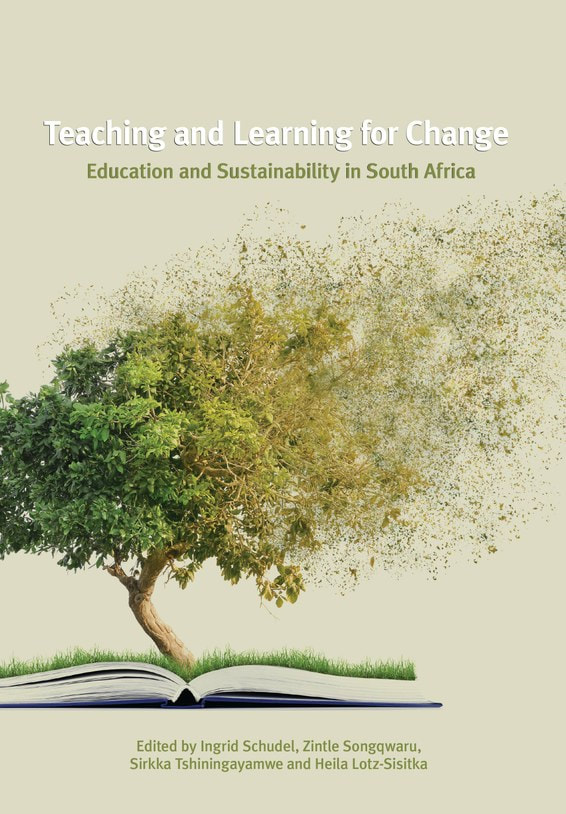
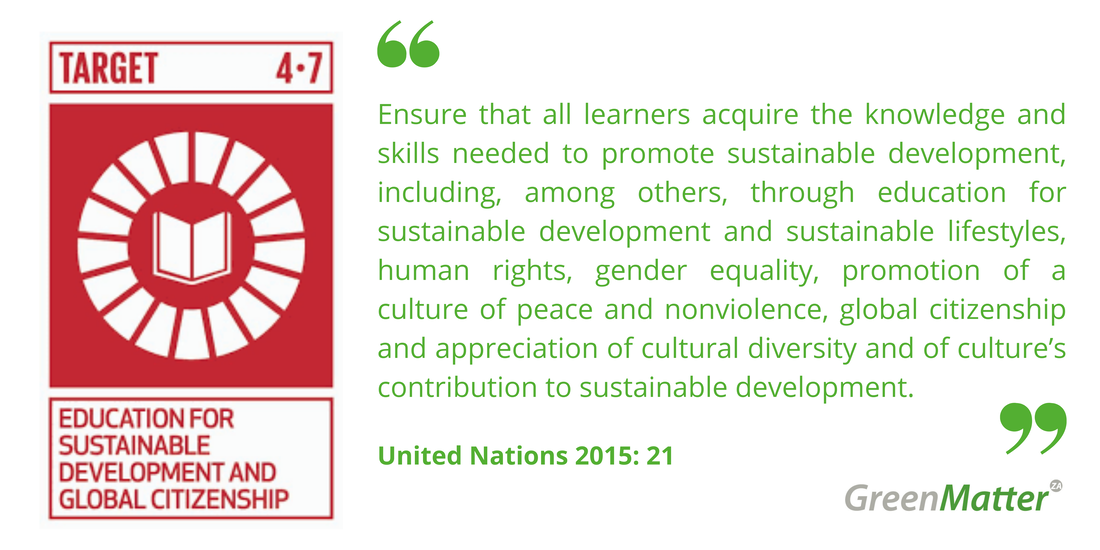
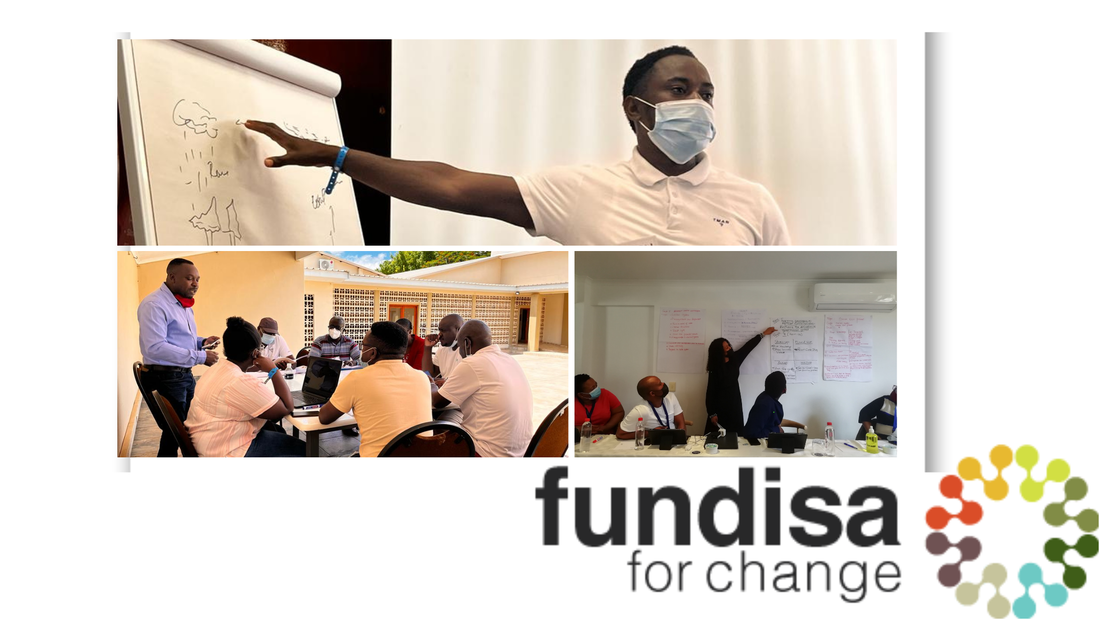



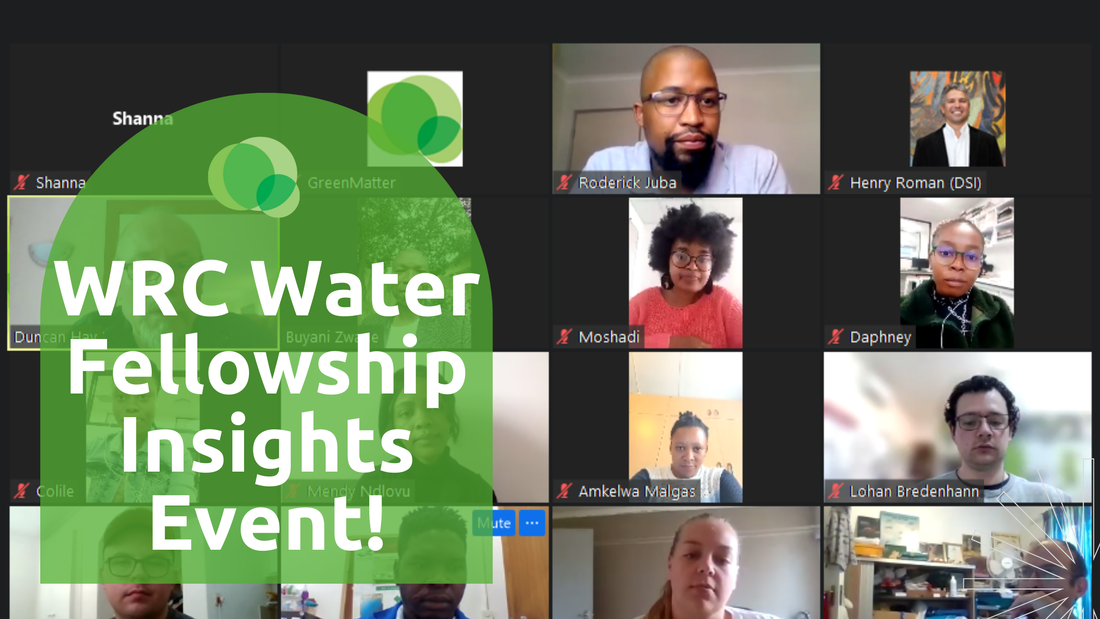
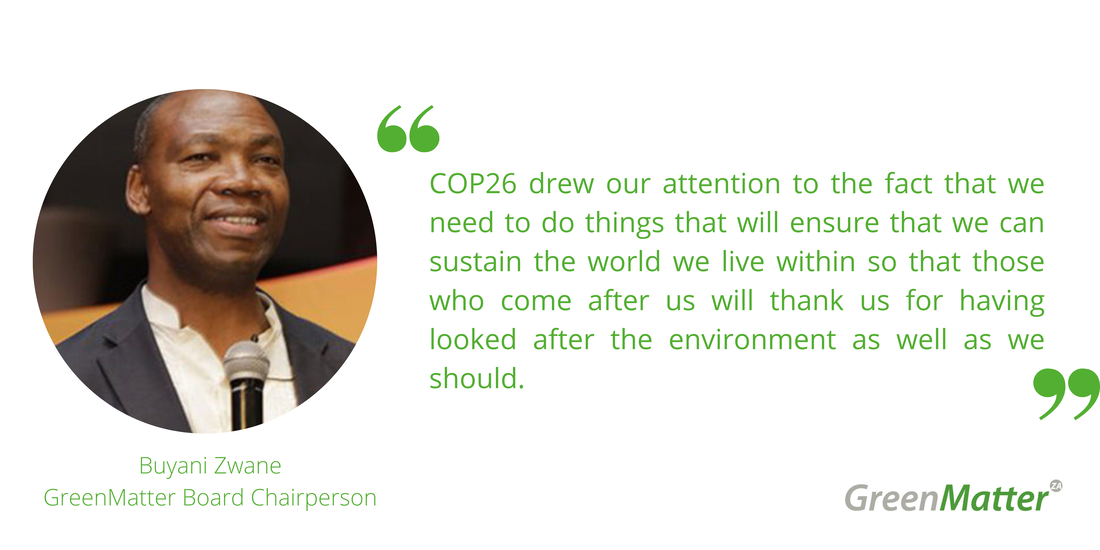






 RSS Feed
RSS Feed